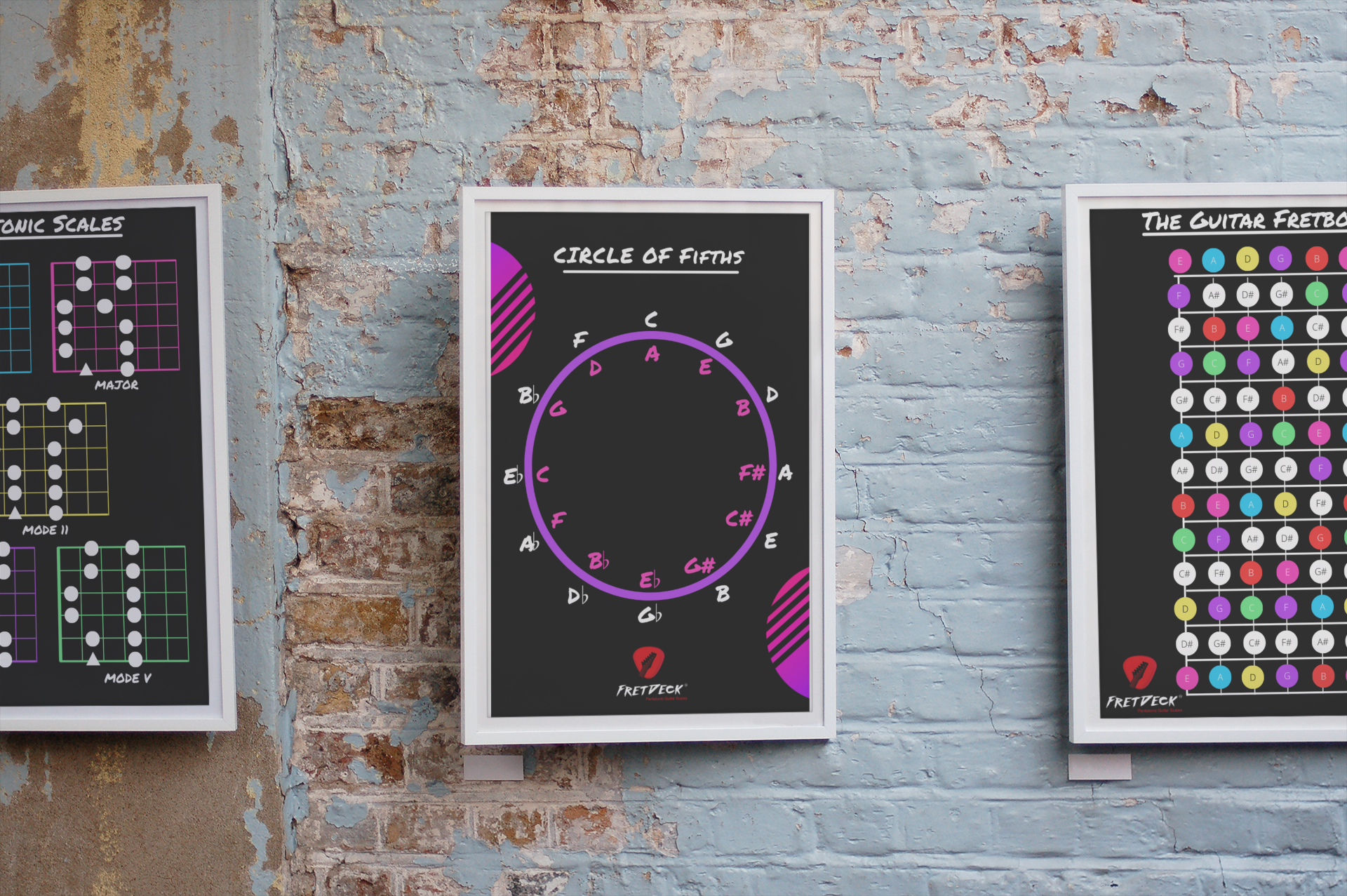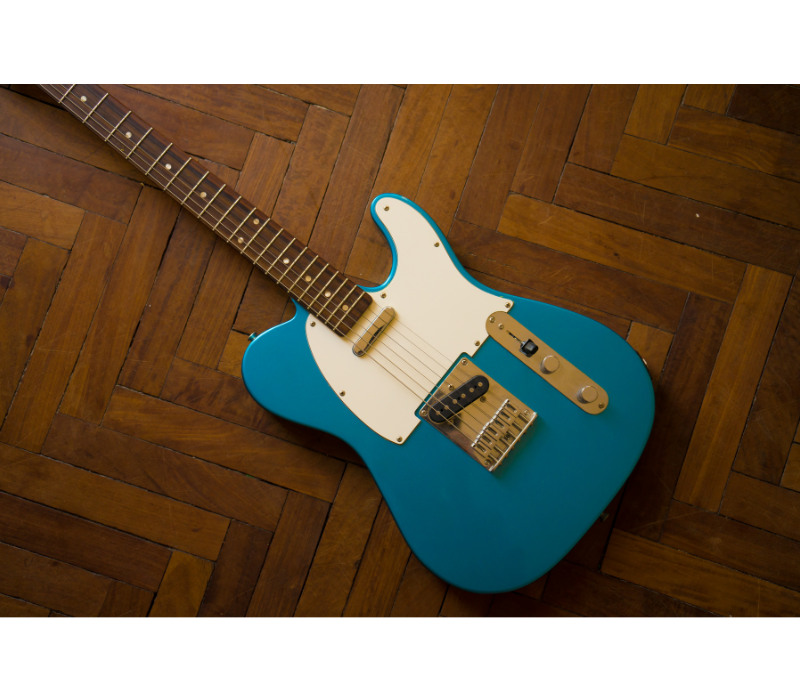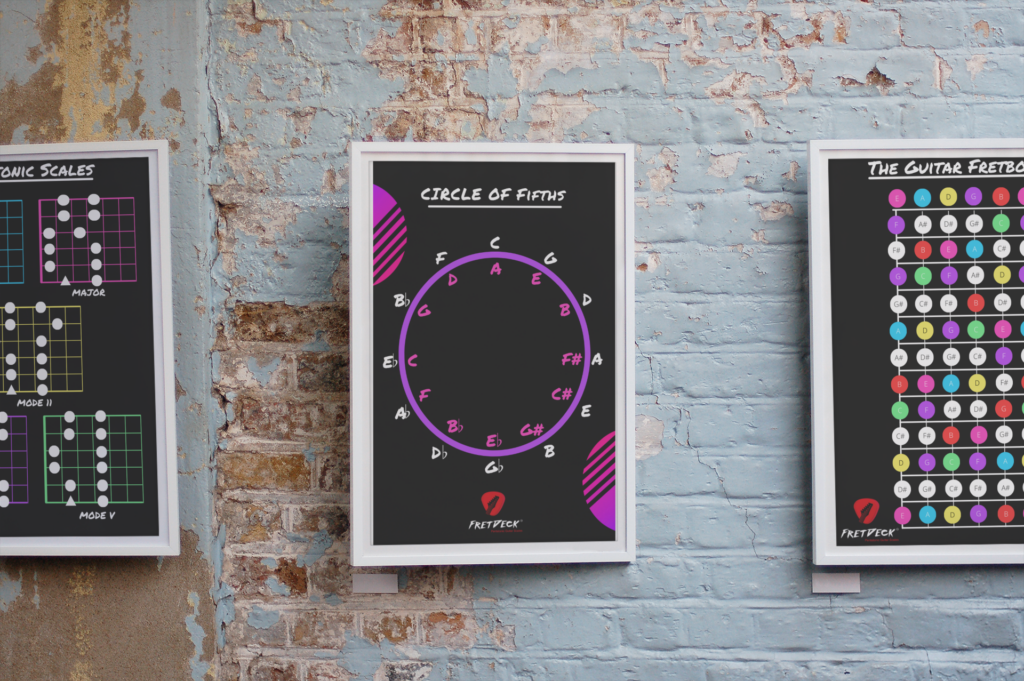When it comes to blues guitar, few elements are as quintessential and evocative as the minor pentatonic scale. This timeless scale has been the cornerstone of the blues genre, elevating the playing of legendary artists like B.B. King, Albert Collins, and Stevie Ray Vaughan to iconic status. In this article, we’ll learn how these masters wielded the minor pentatonic scale to sculpt their signature sounds and explore four effective ways to practice this fundamental scale.
How Blues Icons Use Minor Pentatonic Guitar Scales
1. B.B. King: Known for his emotive vibrato and searing single-note runs, B.B. King epitomized the expressive power of the minor pentatonic scale. His solos, such as those in “The Thrill Is Gone,” are filled with soulful bends and melodic phrases drawn straight from the minor pentatonic framework. King’s ability to infuse each note with feeling showcases the versatility and depth of this scale.
2. Albert Collins: Revered for his icy tone and innovative approach to blues guitar, Albert Collins brought a distinctive edge to the minor pentatonic scale. His use of unorthodox string bends and unconventional phrasing breathed new life into classic blues licks. Collins’ playing on tracks like “Frosty” demonstrates how he pushed the boundaries of traditional blues while staying rooted in the raw emotion of the minor pentatonic scale.
3. Stevie Ray Vaughan: A true guitar virtuoso, Stevie Ray Vaughan’s fiery playing style and technical prowess made him a legend in the world of blues rock. Vaughan’s solos, such as those in “Texas Flood,” are masterclasses in minor pentatonic improvisation. With lightning-fast runs, soulful bends, and dynamic shifts in dynamics, Vaughan showcased the full range of possibilities inherent in this timeless scale.

Download FREE Guitar Charts!
We have 27 FREE guitar charts to help you learn the guitar fretboard. Learn How to play chords and scales with these free resources.
Free Guitar Resources
4 Ways to Practice Minor Pentatonic Guitar Scales
1. Scale Sequences: Break out of the typical up-and-down scale pattern by practicing scale sequences. Experiment with ascending and descending sequences, such as thirds, fourths, and fifths, to develop your dexterity and phrasing.
2. Targeted Note Practice: Focus on specific target notes within the scale to build melodic awareness. Practice bending and sustaining these target notes to develop control and expression in your playing.
3. Rhythmic Variation: Explore different rhythmic patterns and subdivisions while practicing the minor pentatonic scale. Incorporate syncopation, triplets, and swung rhythms to add groove and dynamics to your playing.
4. Ear Training: Train your ear to recognize the sound of the minor pentatonic scale in various musical contexts. Play along with backing tracks or songs in different keys to develop fluency and improvisational skills.
Using Minor Pentatonic Guitar Scales in Blues Improvisation
In blues improvisation, the minor pentatonic scale serves as your foundation for expression and storytelling. Start by familiarizing yourself with the scale’s positions across the fretboard in different keys. As you improvise, focus on bending notes, adding vibrato, and exploring the nuances of each phrase. Pay attention to the tension and release created by resolving phrases to chord tones, and don’t be afraid to experiment with chromatic passing tones for added color.
Remember, the key to effective improvisation lies in listening and responding to the music in the moment. Let your emotions guide your playing, and allow the soulful spirit of the minor pentatonic scale to shine through in every note.
In conclusion, the minor pentatonic scale is a timeless tool that has shaped the sound of blues guitar for generations. By studying the techniques of blues icons like B.B. King, Albert Collins, and Stevie Ray Vaughan and incorporating effective practice methods into your routine, you can unlock the full potential of this versatile scale and take your playing to new heights of expression and creativity.
With this, you can guide readers through the history, techniques, and practical application of the minor pentatonic scale in blues guitar playing.

Download The FretDeck & Pentatonic Secrets Course!
Download Our Course





